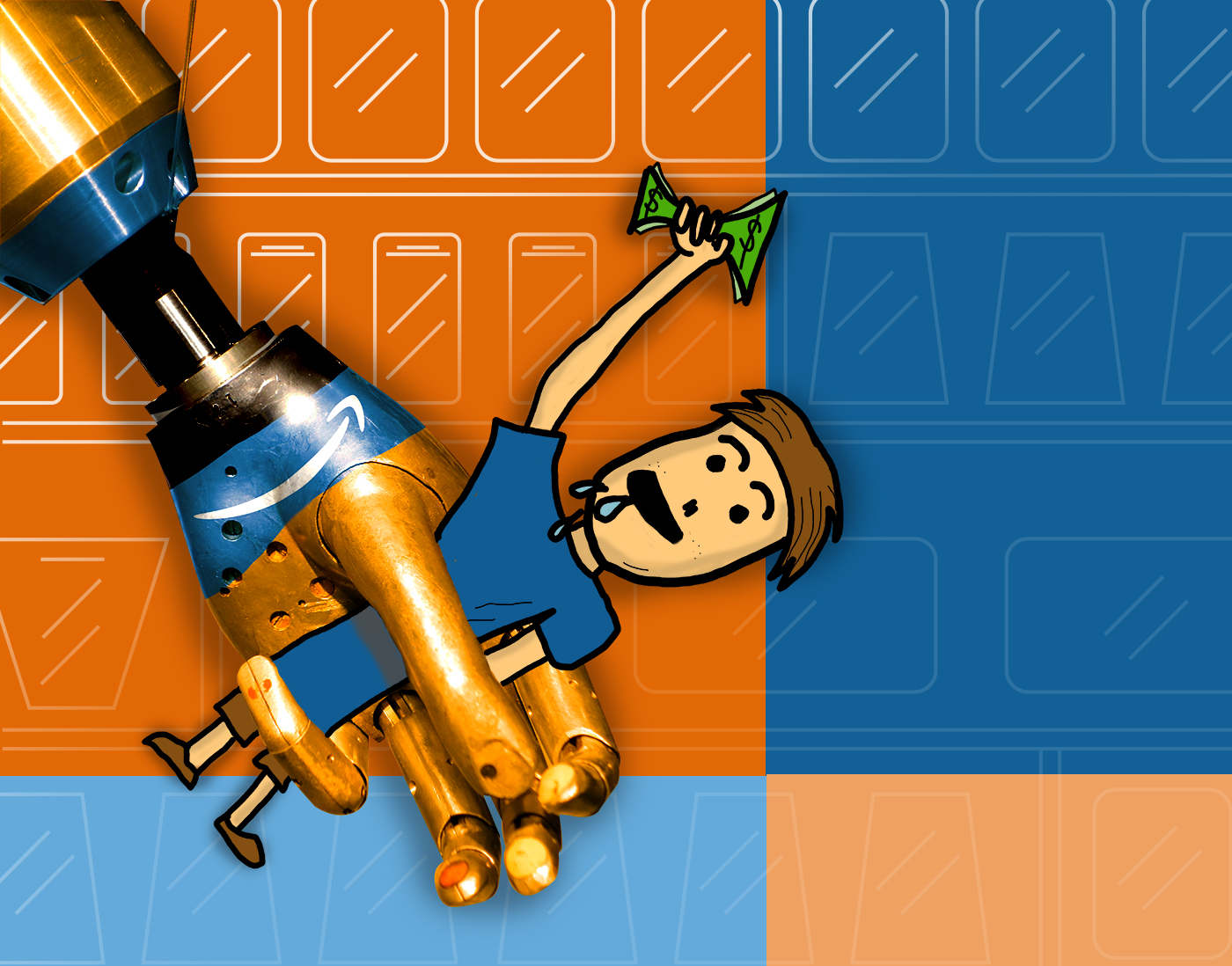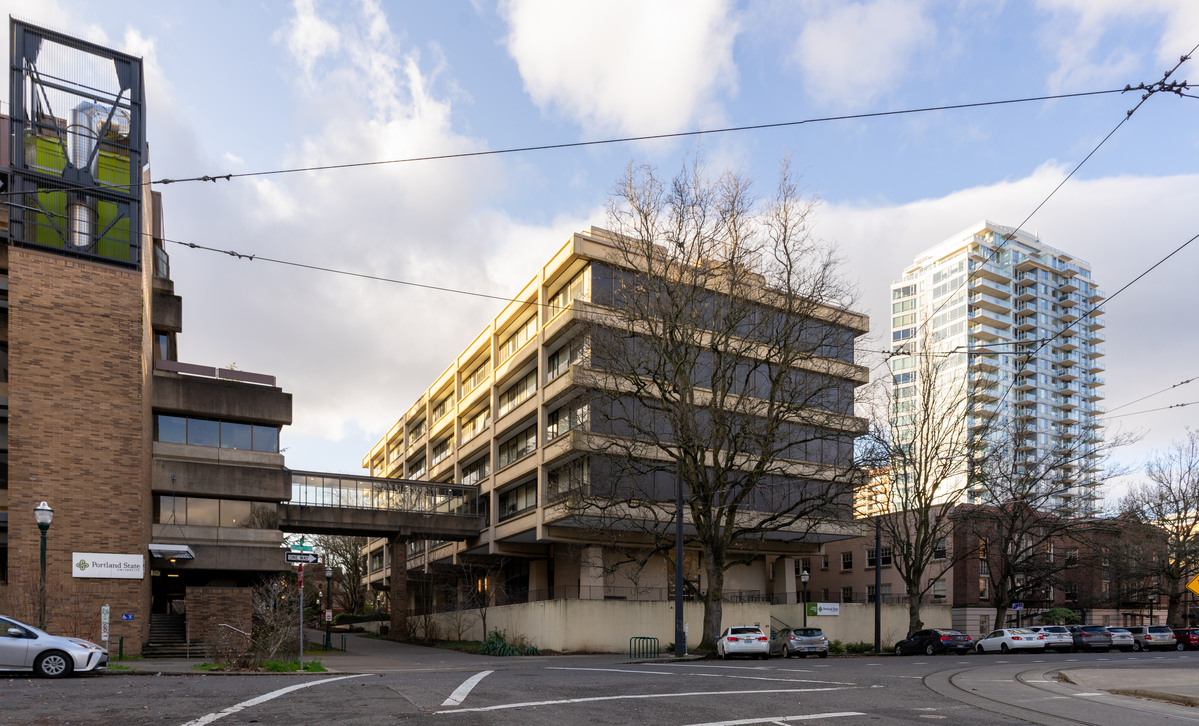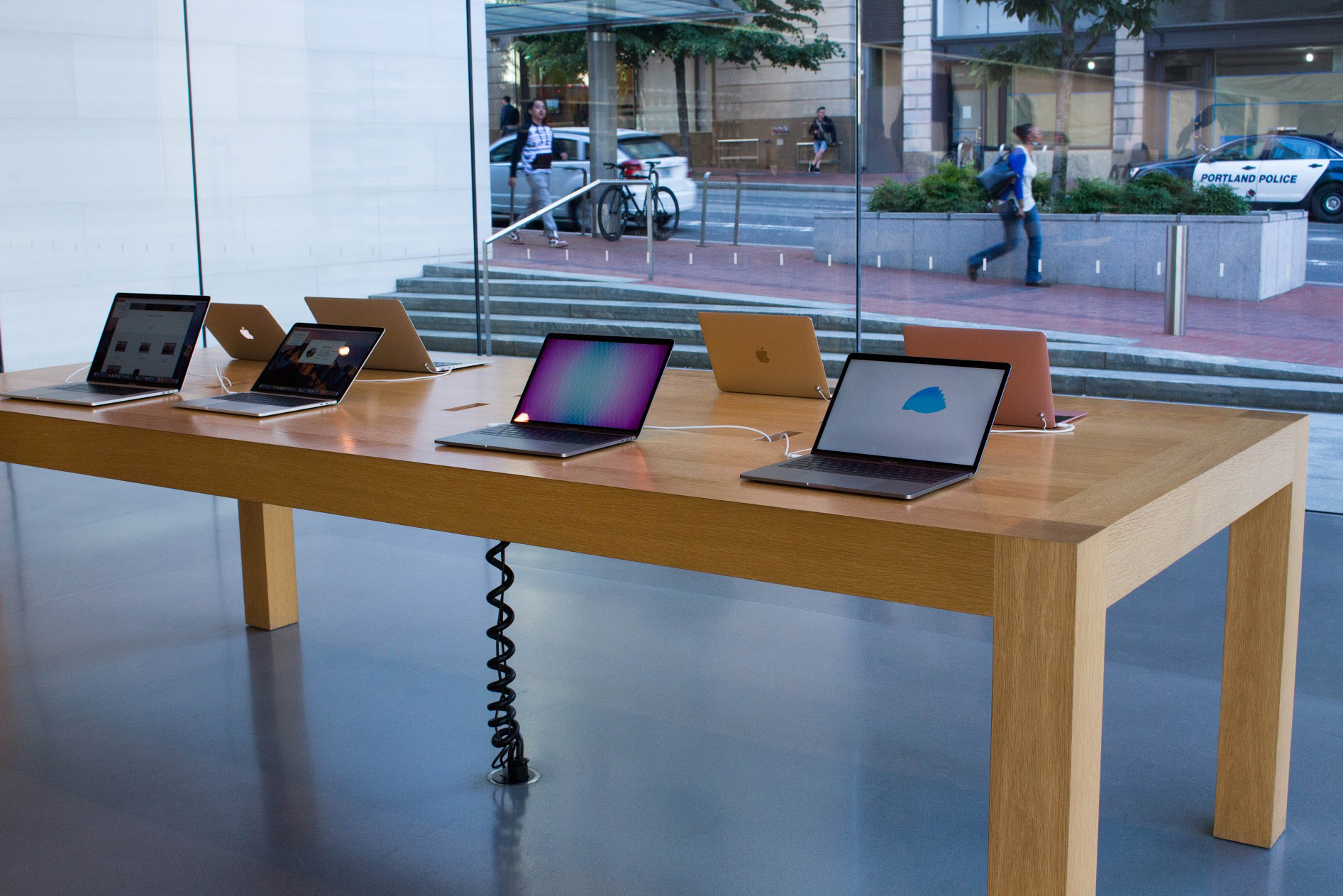No courtesy clerks, no greeters and best of all, no cashiers: Amazon presents AmazonGo, where shopping is “frictionless.”
Google defines frictionless shopping as purchases made from a smartphone app, bringing shoppers inside the smartphone. Not exactly the stuff of dreams but instead a logical endpoint, the triumph of not filling a need but fulfilling needs we didn’t yet know we had.
“Time and Space died yesterday. We are already living in the absolute, since we have already created eternal, omnipresent speed!”—Amazon’s “frictionless” vision wholeheartedly embraces the ramblings of the Futurist manifesto. The company has concocted a way to speed up the consuming ritual by cutting out the “friction.”
Friction in the tech company’s lexicon, of course, means people.
I made it a point to visit the AmazonGo store in Seattle for the same reason that anyone does: to satiate my curiosity. The draw behind this store is that a shopper can walk in, pick up a sandwich and walk out. Whatever they pick up will be automatically charged to the card in their pocket without said card ever having to leave their pocket. Does it really work?
I had a sandwich wrapped in plastic and then cardboard and then more plastic and a plastic bottle of water too; it’s just as they say.
Every shopper came for the same reason, to gawk at the absurdity of it and share pics on social media. However, unlike Powell’s books or other one-of-a-kind sites where selfie takers frequent, Amazon and companies like it are hoping to make this kind of thing normal.
Blocks away, the antithesis to AmazonGo lies against a hill and has for decades. As we entered and then left Amazon’s machine with unimaginable smoothness, we decided to stretch our legs a little and walk to Pike Place Market. Flowers were on display, and we negotiated space through crowds of people flowing through the old market the way humans do when they come together, like water. The fishmongers throw fish and with each slippery heave and catch a group of children clap and yell with boisterous delight. To the side, a seasoned fish thrower coaches the new guy on their product from the Pacific Northwest.
The place has a smell. The floor is lumpy at some points and slippery at others. My friend and I found a grocery store at the end of the building and closely inspected its beer selection. We took turns exclaiming our own takes on one of craft beer’s most incredible victories: the introduction of spruce tips to ale. All of this had the effect of postponing our trip to the cash register. “Friction” if you want to call it that.
Needless to say, there’s more going on in Pike’s than eating and drinking. AmazonGo and Pike Place Market can both exist on the streets of our cities, and to be sure, in some instances, Amazon’s feed bag makes more sense than Pike Place Market. But in my opinion, one is far more beneficial than the other and in ways that are hard to quantify.
Why does tech get away with calling human interaction “friction”?
That same day, the story broke that Microsoft will be teaming up with Albertson’s to provide a “frictionless” shopping experience. Online shopping shows exponential growth.
Make no mistake, people want convenience. But what if we’re sleepwalking into it?
The jaded view of Pike Place is as something akin to Amazon’s perfected consumer ritual and to write it off as yet another form of consumerism. That may be, but I challenge the skeptic to not feel something more than eating and drinking when a fishmonger heaves a slippery fish to another and with each miraculous catch a group of school children roars with joy.
Pike Place has a story; its uses are many and its frictions spurn yet more stories. People have found ways to pull narratives out of AmazonGo’s closest cousin, the convenience store, yet when you compare the two, the convenience store seems alien, it has more in common with the marketplace than the frictionless grocery store.
The difference is at AmazonGo, there is no one to tell you to leave; but why would you stay?






